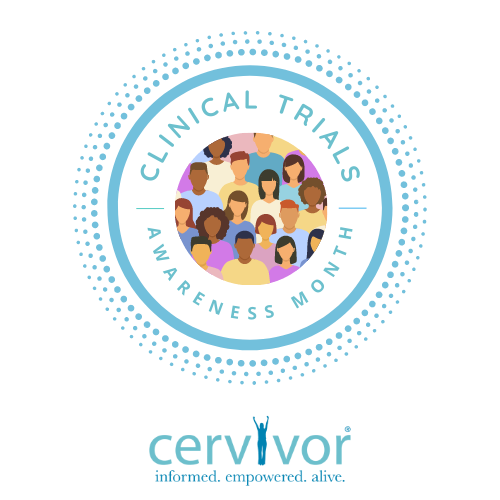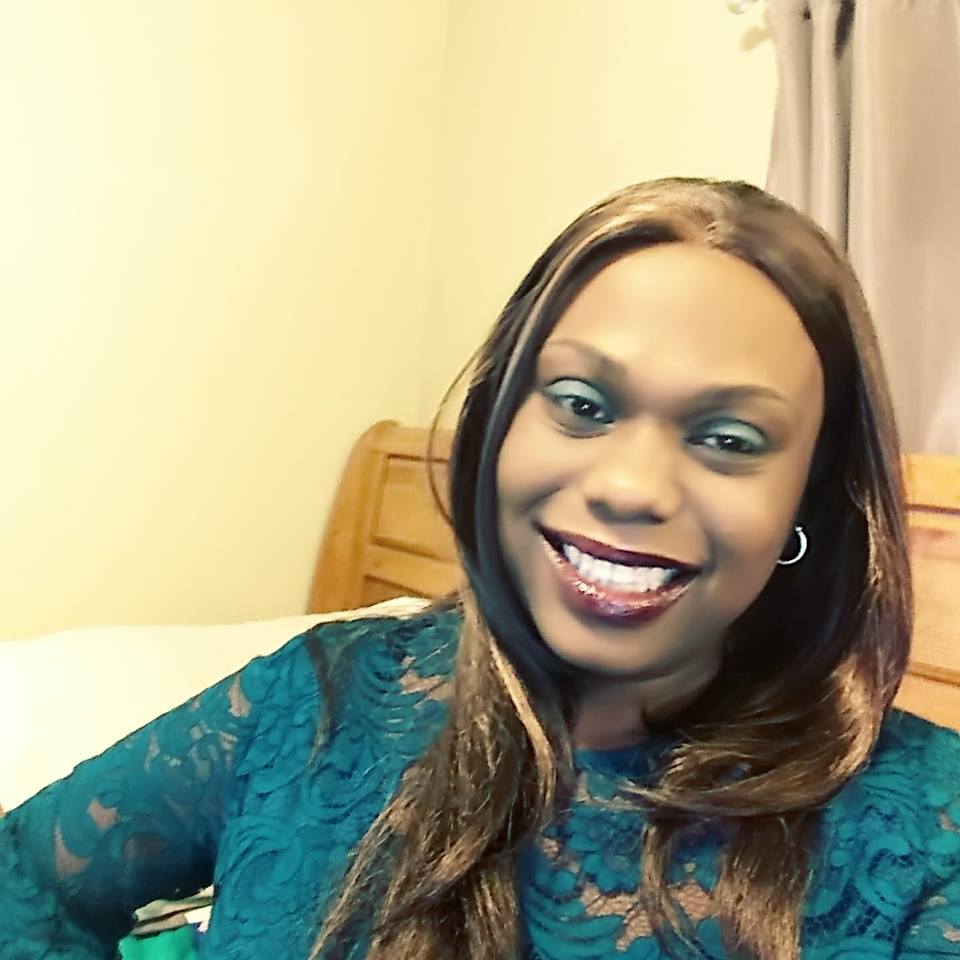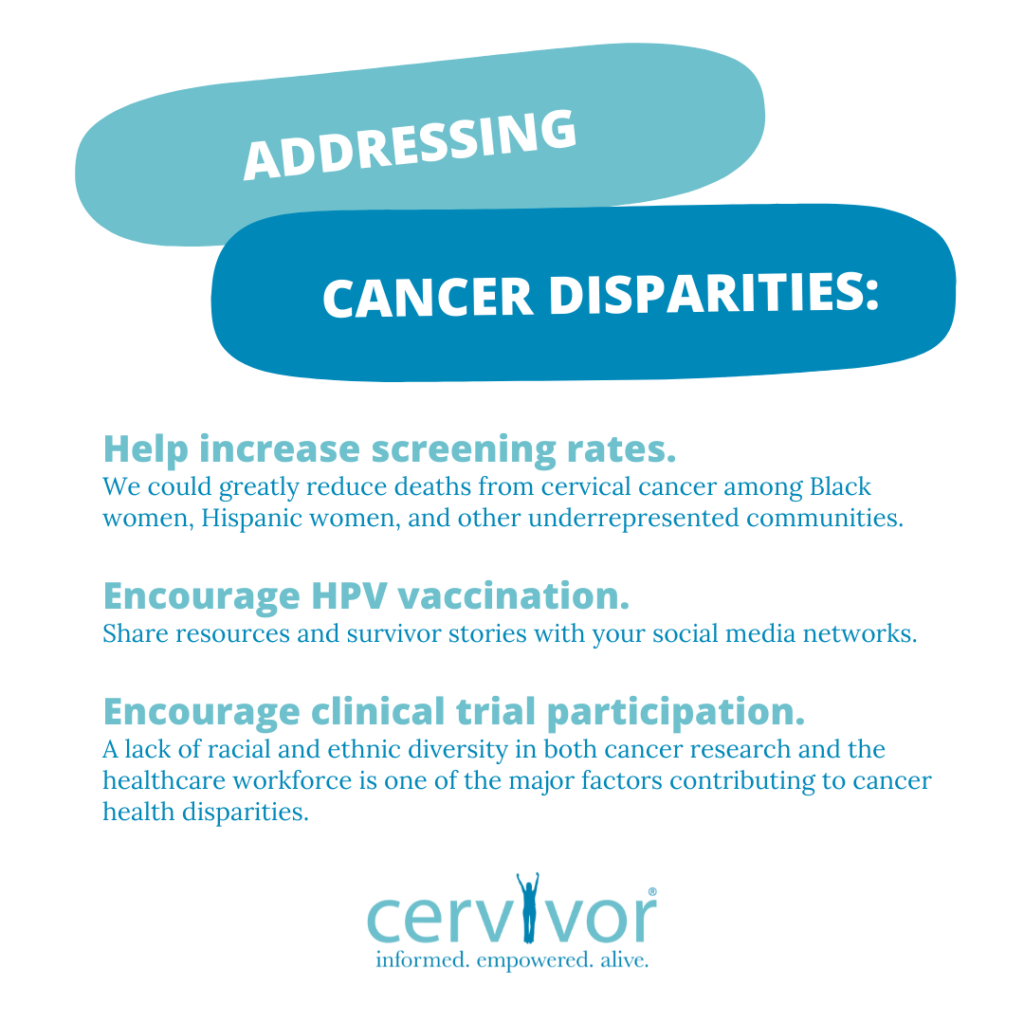This April, as we mark both National Cancer Prevention and Early Detection Month and Minority Cancer Awareness Month, Cervivor, Inc. is doubling down on its pledge to dismantle barriers in cervical cancer care.
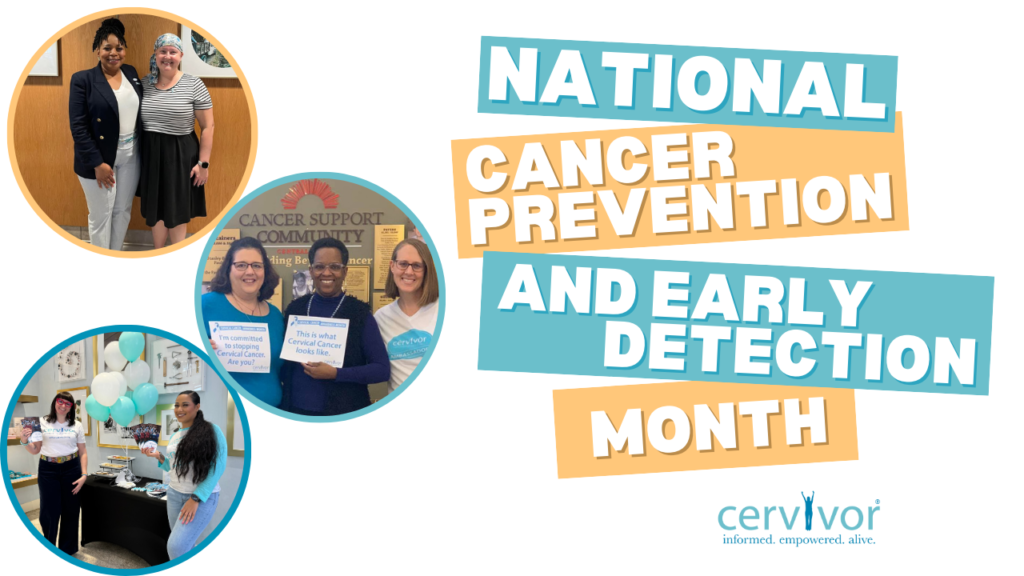
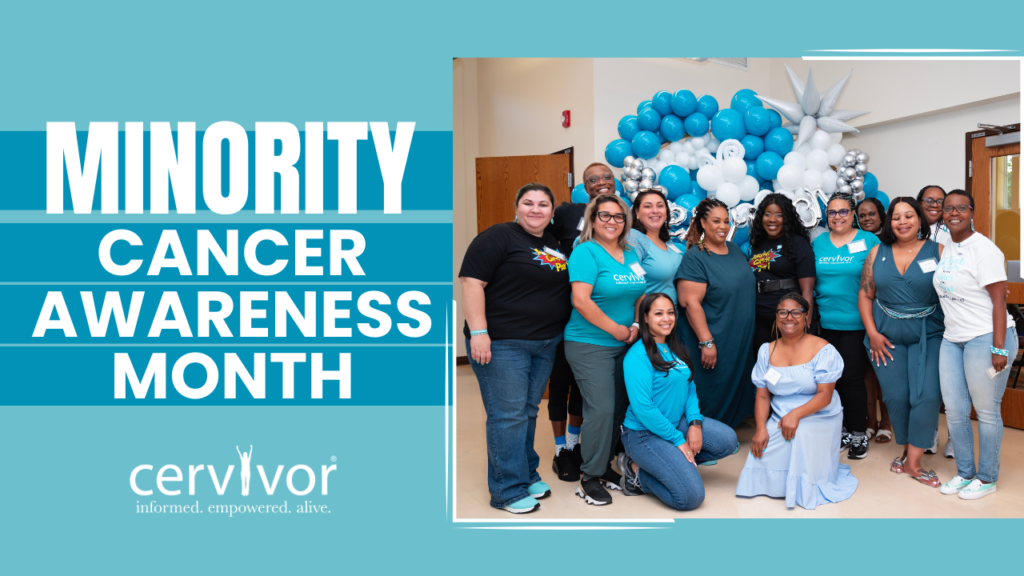
Rather than focusing on “minority” health, however, we’re shifting the focus to health equity. Our mission is to ensure that every individual – regardless of race, ethnicity, income, or zip code – has access to life-saving treatment, survivorship resources, and education.
A Call to Action
On Tuesday, March 26th, Cervivor’s Founder and Chief Visionary Tamika Felder addressed attendees at the American Cancer Society Cancer Action Network’s HPV Policy Symposium about the devastating impact cervical cancer has on us individually, nationally, and globally. This preventable disease has claimed too many lives and altered countless others.
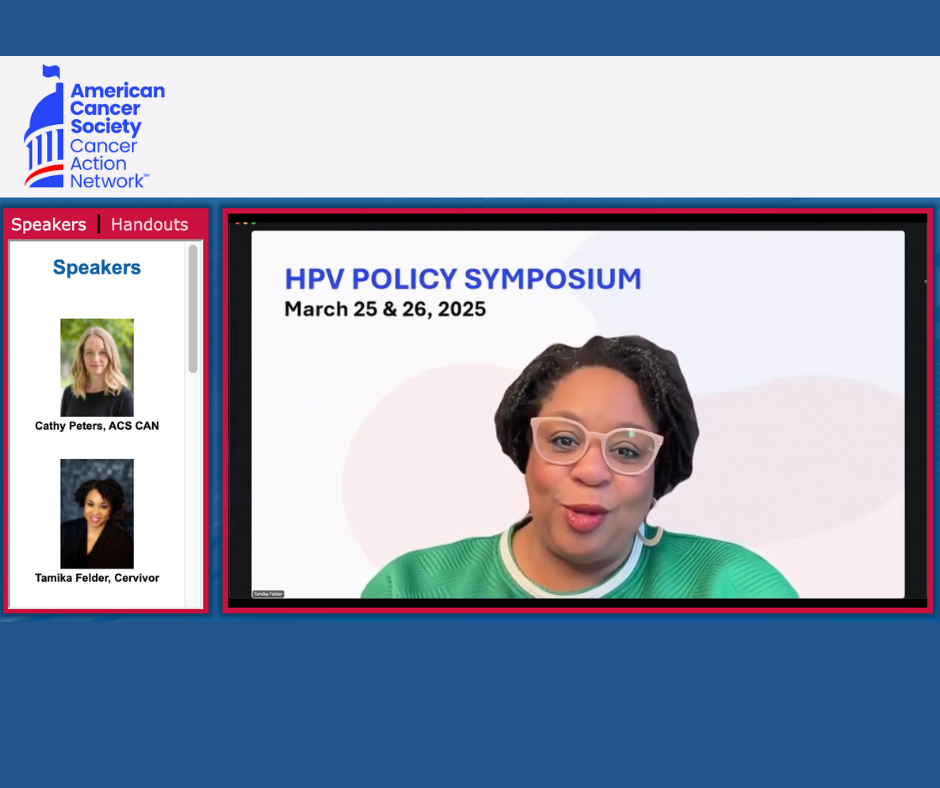
But we have the power to change this narrative. The human papillomavirus (HPV) vaccine, along with screening and diagnostic tests, are groundbreaking tools in our mission to eliminate cervical cancer – and we’re committed to making them accessible to all.
“Every patient, every voice, and every cervix matters. Prevention is available, and we can make a difference,” Tamika said at the symposium. “Together, we can create a future where no one has to suffer from this preventable disease. It’s time to push the needle even further and end cervical cancer once and for all. We need to double down on safety, efficacy, and promotion of vaccination. Preserve access to screening, diagnostic, and treatment care – it’s the only way we can achieve elimination.”
The Road to Success
Achieving a future free from cervical cancer requires addressing systemic barriers that prevent marginalized communities from accessing life-saving care. At Cervivor, equity is a core value driving our purpose. We recognize that disparities in healthcare access and outcomes hinder progress against this preventable disease. What can we do to help?
- Education and Awareness: Counter mis/disinformation and rumors surrounding HPV vaccination and cervical cancer prevention. Ensure that accurate and culturally sensitive information reaches all communities. Utilize trusted partners in purpose like the National HPV Roundtable, the National Foundation for Infectious Diseases (NFID), and Vaccinate for Your Family.
- Access to Care: Advocate for policies that protect, preserve, and expand access to HPV cancer prevention care, including vaccination, screening, and early detection. Ensure that treatment and survivorship care services are available and affordable for all. Join nonpartisan organizations like the American Cancer Society Cancer Action Network (ACSCAN), Prevent Cancer Foundation, and the National Coalition for Cancer Survivorship.
- Making Screenings and Vaccinations Widely Available: Increase the availability of screenings and vaccinations in underserved areas, making it easier (not harder) for individuals to take control of their health through mobile clinics, community health centers, work and school-based programs, and pharmacies with expanded services. Addressing barriers such as transportation, finances, language, and cultural competence, plus increasing awareness and education through community outreach, too!
Remembering and Honoring those Impacted
As we push toward the goal to eliminate cervical cancer, we remember the lives that have been lost and the voices who demand to be heard.
Laura Brennan: A Voice for HPV Vaccination
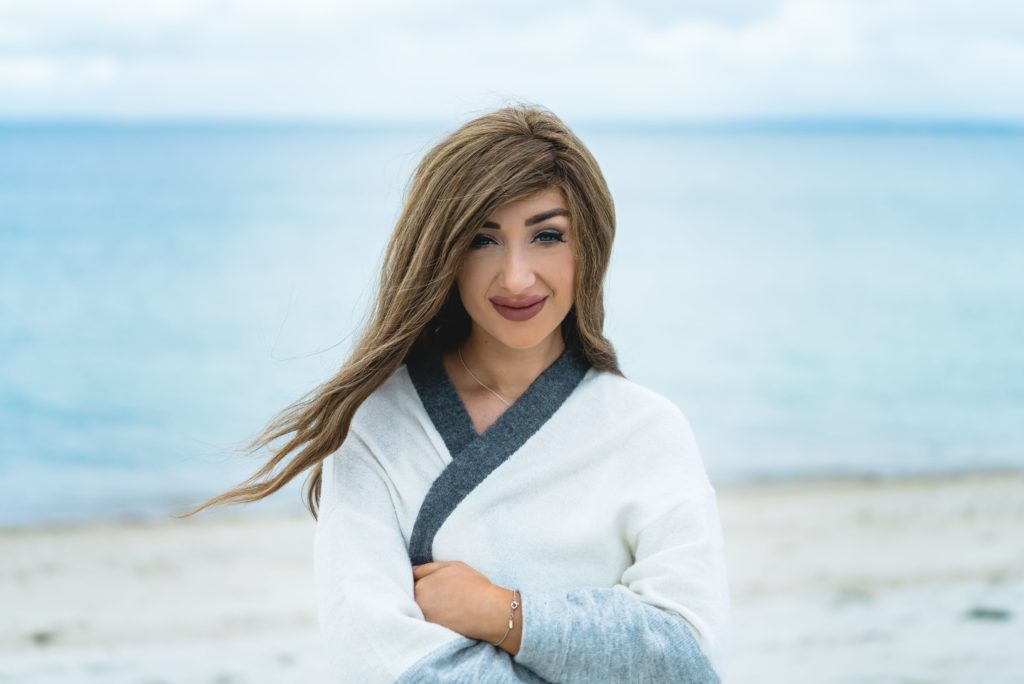
Laura Brennan‘s courage and resilience in the face of cervical cancer continue to inspire us. The young Irish woman’s life was tragically cut short, but her story serves as a poignant reminder of the urgent need for collective action to prevent others from the same fate.
Dr. Nina Rickenbacker Edwards: A Passionate Advocate for Awareness
Dr. Nina Rickenbacker Edwards‘ life was forever changed when her daughter, Teolita, was diagnosed with stage IV cervical cancer. Nina became a passionate advocate for cervical cancer awareness and dedicated herself to educating others about the importance of prevention. Through her tireless efforts, Nina honors Teolita’s memory and inspires others to take action to end cervical cancer.
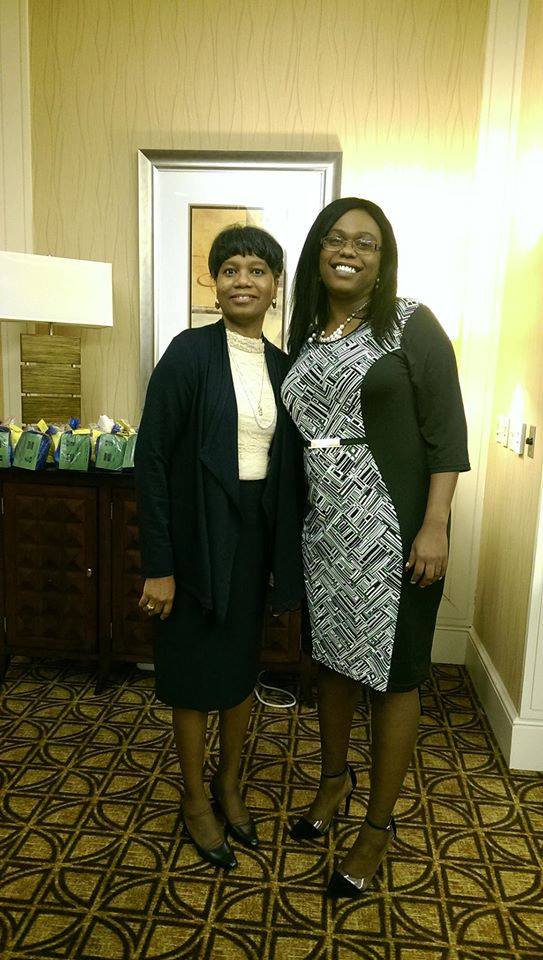
Joey Feek: Country Singer Silenced by Cervical Cancer
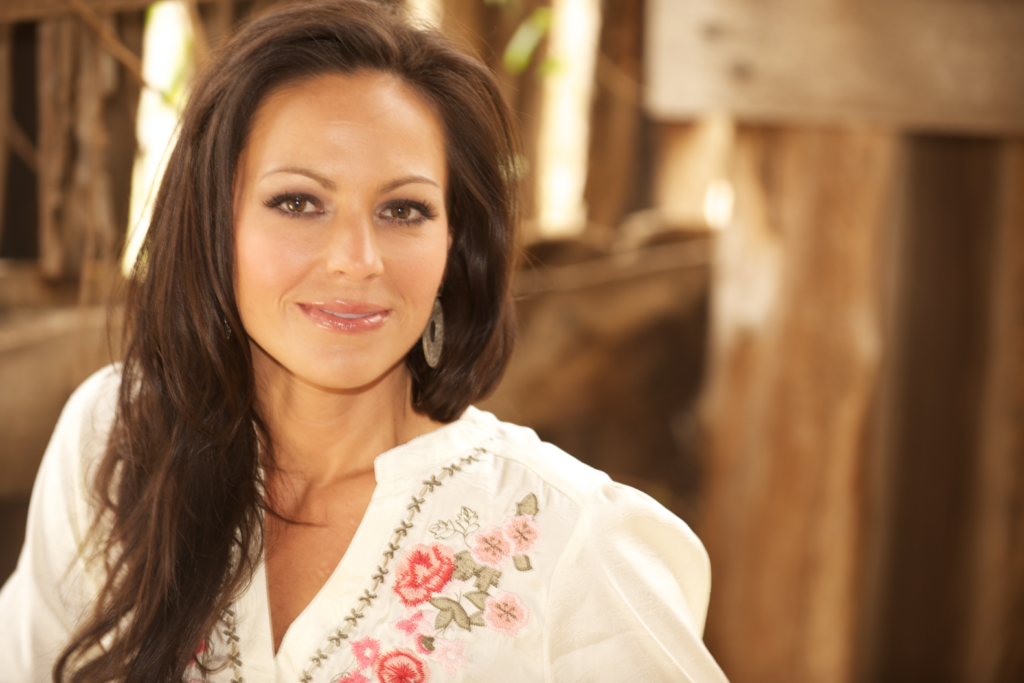
The world mourned the loss of country music singer Joey Feek, who passed away from cervical cancer in 2016. Feek’s life and career serve as a testament to the profound impact cervical cancer can have on individuals, families, and communities.
The Time is Now!
To eliminate cervical cancer, we must confront the systemic barriers, inequities, and injustices that have allowed this preventable disease to persist. In recognition of National Cancer Prevention and Early Detection Month and Minority Cancer Awareness Month – and as Cervivor marks its 20th year – we’re calling on our community to support our Tell 20, Give 20 awareness and fundraising campaign. A donation of just $20 can help us continue to “push the needle” toward ending cervical cancer once and for all.
